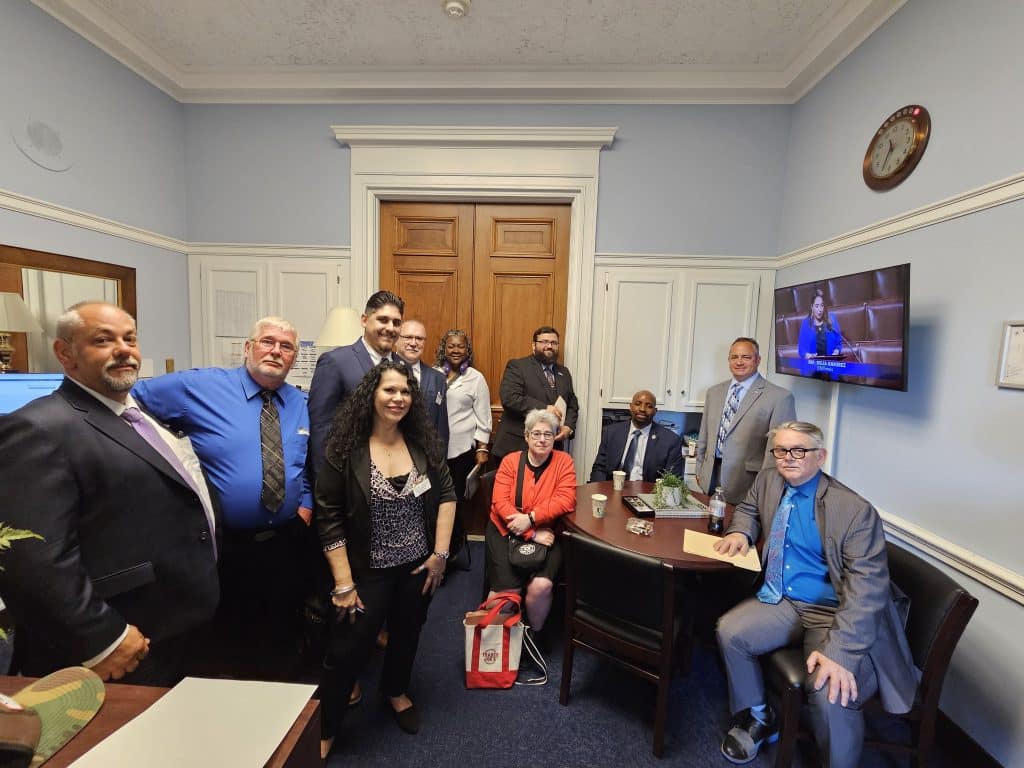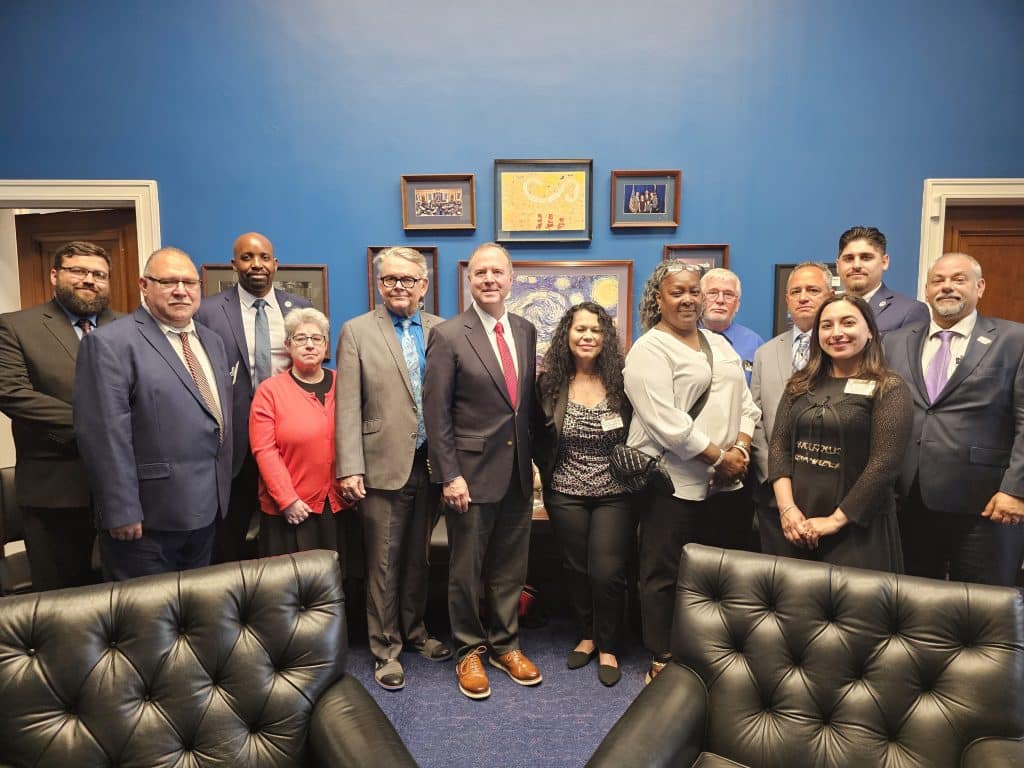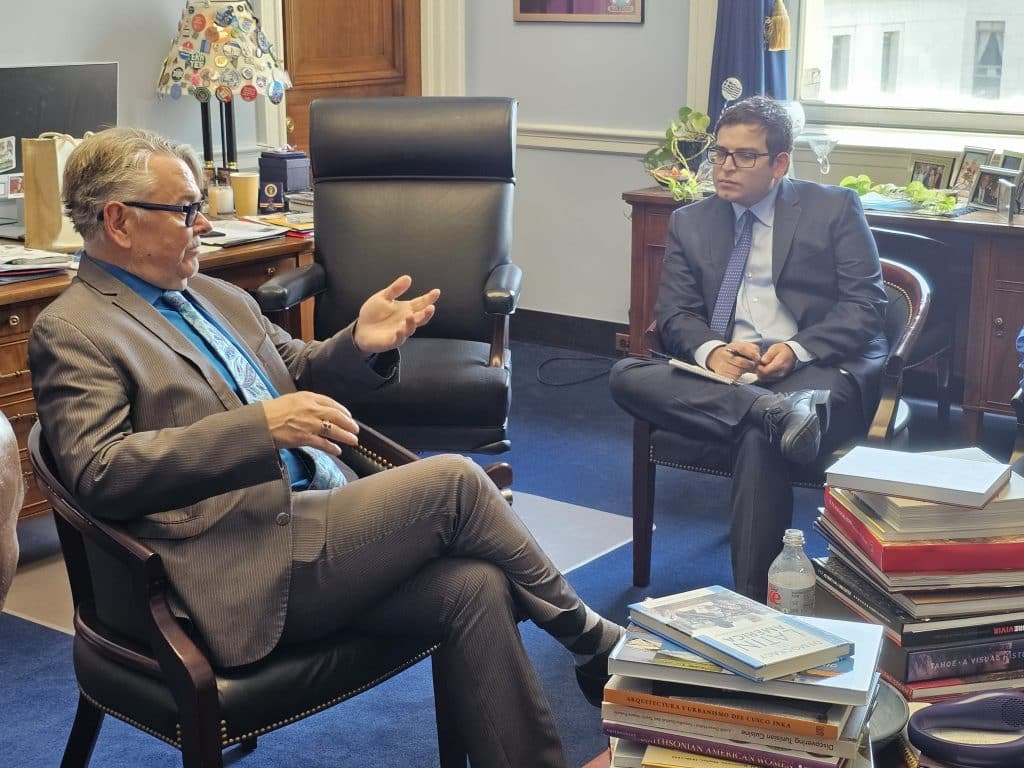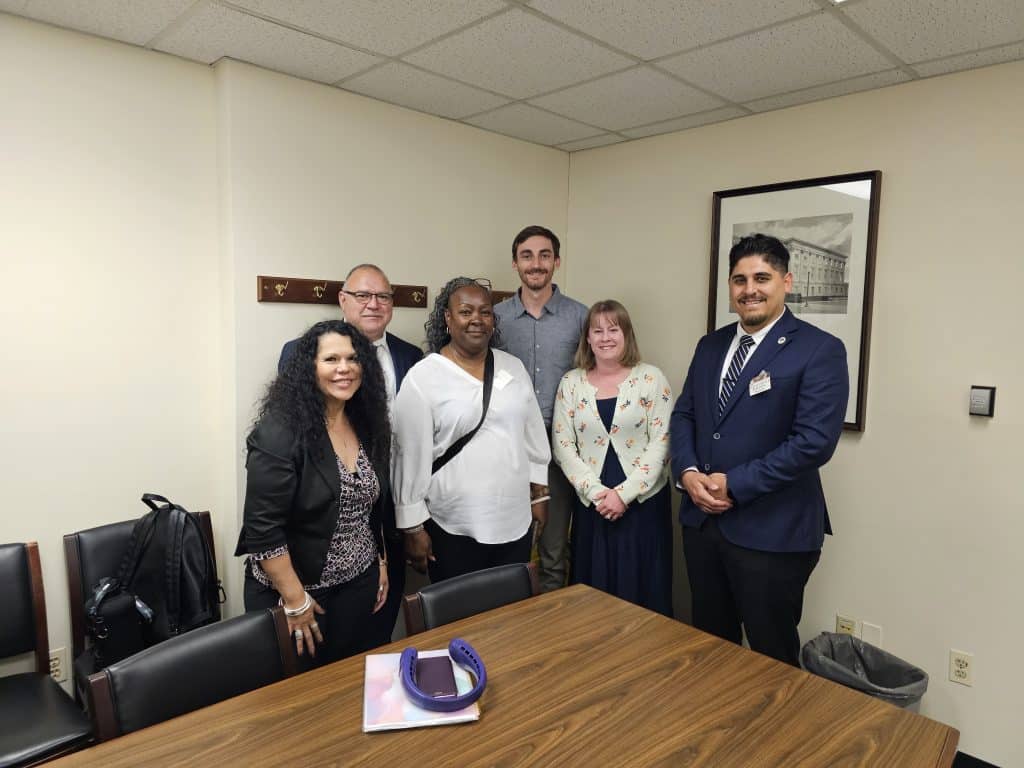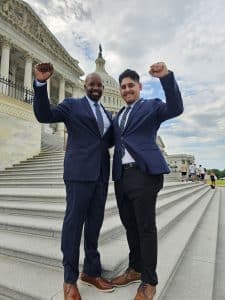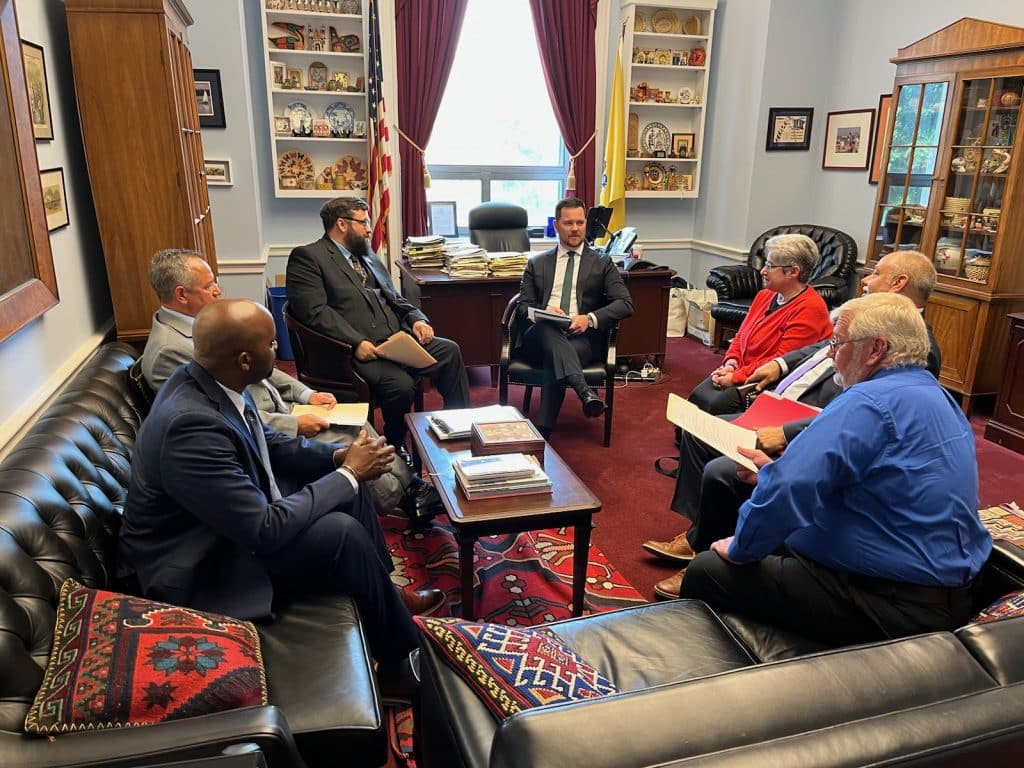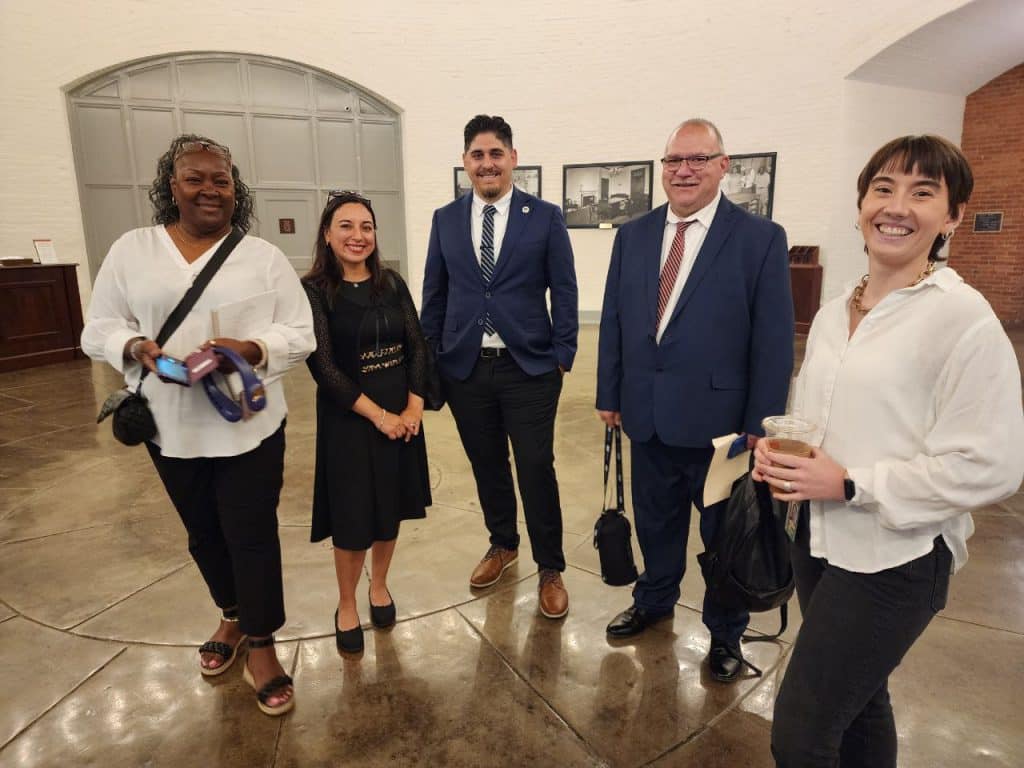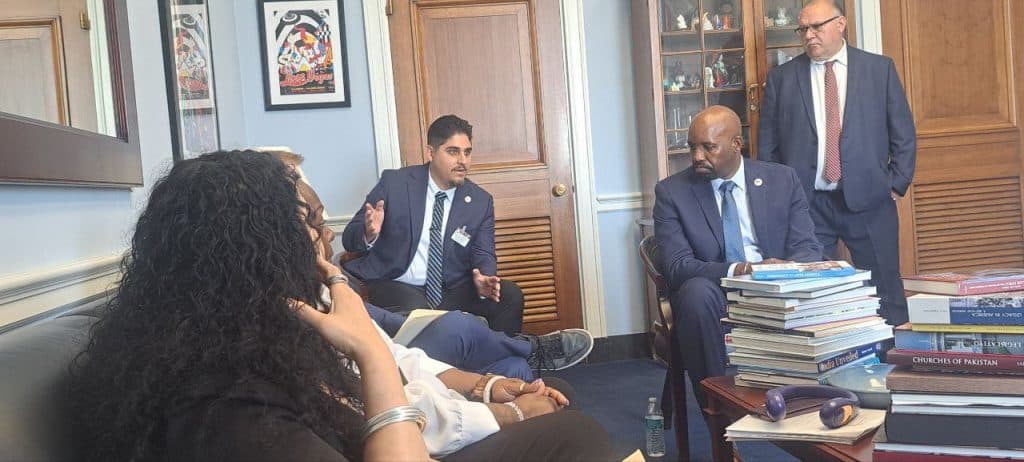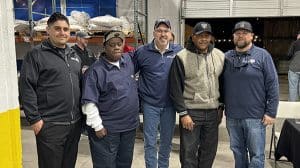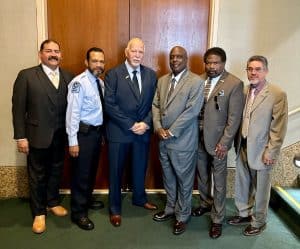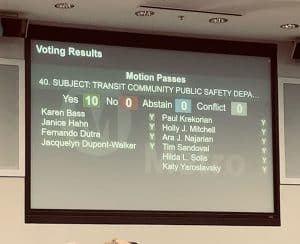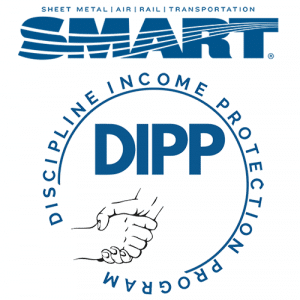CLEVELAND — The SMART Transportation Division’s National Training Seminar (NTS) began Tuesday, with TD President Jeremy Ferguson emphasizing that the organization is working hard to fill the needs of its membership.
“Whether it be through educational offerings, such as the week-long NTS running through July 11, or superior representation for the people the union serves and contracts, SMART-TD will stay ahead of the game,” he said.
Intensive officer training prepares the union for the road ahead
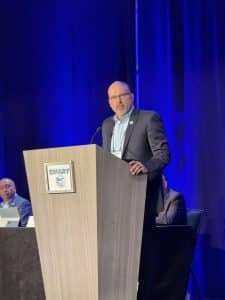
More than 700 bus and rail officers are attending the first national training seminar since the COVID-19 pandemic. The 2024 NTS follows a series of intensive regional events, each designed to provide key training for union officers from the legislative, chairperson and local levels. Attendees took part in officer-specific training flights, many for the first time.
“The training is going to be intense,” President Ferguson said of the national training program. “No matter what training you are going through, no matter what craft you are representing, you are going to leave here confident in what you are tasked to do in your position, and you are going to be able to go back and represent your members at the highest quality level.
“Don’t be overwhelmed if you think it’s too much,” he assured newer attendees, reminding them that SMART University, officers at all levels and staff at the Transportation Division office will all be available for assistance when needed. “Everybody is going to be here to support you in the learning process.”
Remembering two fallen members
The attendees also at the request of President Ferguson observed a moment of silence for the recent loss of two active members.
Local Vice President Colin Nichols of Local 486 (Glendive, Mont.) died July 1 as the result of an accident at his home at age 44.
Member Justin Pender of Local 577 (Northlake, Ill.), died July 6 at the Proviso Yard near Chicago in an on-the-job accident. Member Pender, 27, a Union Pacific conductor, is the first on-duty loss for our organization in 2024. The accident is being investigated by the National Transportation Safety Board.
A drive to provide the best possible representation
The past five years have been one of substantial transformation for SMART-TD and for rail labor, Ferguson noted.
“Over the past five years, it’s not what I did as president. It’s not what we did as an administration. It’s what we all did as a union,” he said. “Whatever the case may be, we did it better than everybody else, and we did it to win.”
SMART-TD’s ability to get results for their members has not gone unnoticed. Recent friction with the new leadership of another labor organization has emerged, as properties ready for strong representation switch to SMART-TD.
Officers from a pair of the new properties that are new to the SMART-TD — the Louisville & Indiana and Montana Rail Link were also recognized. Local Chairperson Zach Cochran and Local 426 members Ryan Burns, Joshua Olson and Bryan Trimbo were all attending their first SMART-TD training session.
“We have a duty and an obligation to do what’s right for you all, for our members and for this union,” Ferguson said. “We are not desperate for members. We are rebounding. Who’s desperate are the members who are looking for good representation. That’s what the national officers, the general committees, the state boards and you as local officers have been putting out. That’s why members are coming over in droves.”
The effort has led to the creation of engineer-focused “E-committees” in many locals, which provide focus and attention for the rail engineers who prefer to stay with SMART-TD.
Legislation to protect two-person crews develops
National Legislative Director Greg Hynes then updated those in attendance of the Railway Safety Act’s progress in Congress.
U.S. Rep. Troy Nehls, the chair of the House Railroads, Pipelines and Hazardous Materials Subcommittee, introduced a bill that maintains the two-person crew provision set forth by a version that has already passed through committee in the U.S. Senate. SMART-TD’s legislative department will continue to monitor and support this crucial legislation.
Additional speakers included Transportation Trades Department, AFL-CIO President Greg Regan, Railroad Retirement Board Labor Member John Bragg and Federal Railroad Administrator Amit Bose.
Ohio State Legislative Director Clyde Whitaker began the proceedings by taking special note of the long history that both the union and railroad industry have in the city, noting that many of SMART-TD’s predecessor unions had their headquarters in Cleveland and the surrounding area, a tradition that continues today.

